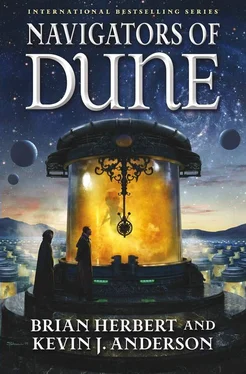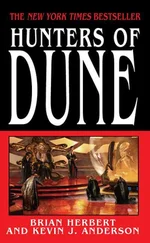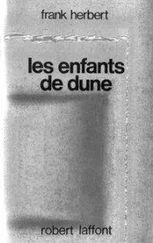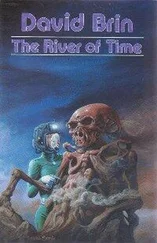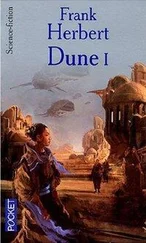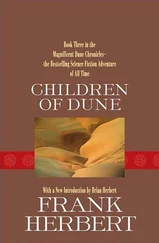The Tlulaxa scientists had grown Erasmus a new body, as requested, but it had taken sweet Anna Corrino to show him the complexities and nuances of being human. Anna had helped him understand the odd and esoteric feelings caused by biological influences and chemical changes. After analyzing the young woman for a very long time, at last he thought he was beginning to understand.
Both before and during the Jihad, as a robot in a beautiful flowmetal body, he had studied hundreds of thousands of experimental subjects, building a database of observations. But those had always been external analyses, and now with this human form grown from the cells of Gilbertus, he could experience the sensations directly.
Anna had expected so much from him—more than he could give—and he knew she was disappointed. That troubled him as well, because he wished he could grasp those emotions he had admired for so long.
Alas, he simply had no time for them now. The priority was obvious: Denali was under attack. He analyzed the array of Imperial ships and prepared to make a quick report to Directeur Venport.
The VenHold ships standing in defense of Denali were going to be problematic, he realized. Norma Cenva would not sacrifice her precious Navigators even for the survival of this research facility. She was irrational about her creations, and she held significant influence over Josef Venport. That meant the available battleships were not expendable, no matter the strategic advantages, which limited the robot’s plans.
He calculated that if the Directeur sacrificed all the large VenHold spacefolders in a massive attack, they could possibly defeat or at least drive back the Imperial fleet, despite being outnumbered. At least it allowed him to formulate a plan in which the surviving scientists and personnel on Denali—including himself and of course Anna—could get away. That was paramount.
If he and Anna escaped, they might continue their studies elsewhere. Perhaps then he could develop into a full-fledged person, but such things took time. In the past few months, he had learned more about humanity than he had in his entire existence before that. He had embraced sadness and guilt over the death of Gilbertus, and genuine rage toward Manford Torondo and the Butlerians—and, yes, satisfaction, even glee, when he viewed images of the Butlerian leader being torn to shreds.
And then there was Anna, with her caring and her love. She fawned over him, which at times was oppressive and annoying, but she meant well, and he was certainly fond of her. No, it was more than that. The intensity of his emotions might eventually become what she called love. In fact, he’d been told that love was a spectrum, with varying degrees of feelings in a variety of situations. He thought he might just be someplace on that spectrum.
In a desperate attempt to bargain with the Emperor, Directeur Venport had broadcast Anna’s cheery recording that Erasmus had so carefully crafted for her. Roderick must love Anna as well, but love from a brother was a different variety of that particular emotion, although Erasmus didn’t quite understand the difference between the passionate love Anna directed toward him and the close familial love she felt toward a sibling. Or the respectful love that Gilbertus had held for him.
That was another thing to investigate when he had the time and opportunity, when there were no interruptions and no alarms.…
In a flash of insight, Erasmus realized that he had hurt Anna with his curt dismissal—hurt her terribly—when she only wanted to love and be loved in return. That was not so much to ask. He paused to review his memories of her distraught expression, her abject despair as she’d fled into the corridors. Hurting her had been unintentional on his part, and not part of any experiment. He had simply been preoccupied with more important things.
She had been so devastated, though, that Erasmus felt … sad? Guilty?
In the past, the robot would simply have filed away those observations for later assessment, but he didn’t wish to hurt Anna, didn’t want to make her sad. He wondered whether this incident might have damaged her irreparably. She was such a fragile specimen.
And she had become more than a mere experiment, much more.
Perhaps he should explain himself to her, and sooner would be better than later, especially if Denali fell and Imperial forces took over the laboratory domes. He didn’t wish to miss that chance. Although he did have defensive suggestions for Directeur Venport, he decided that his priorities should now be in finding Anna Corrino. It didn’t seem logical, but it did seem right.
He returned to their quarters, but she wasn’t there. That did not surprise him, because she had run away sobbing. Likely she was hiding somewhere, and all the shrieking alarms must be frightening her. She would want Erasmus to comfort her, and he had learned techniques to do that. He would apologize to her, which should theoretically be effective.
Erasmus searched in the various laboratories without success and finally went to the cymek hangar, only to find it open and empty. The airlock light was activated, showing that it had been used in the last minute or two. He frowned, then linked into the data from the observation imagers and pulled up the most recent recordings. On screen, he watched Anna stumble into the hangar, weeping and disoriented. She clasped her hands to her head. She looked utterly wretched.
Then, to his astonishment—no, the emotions felt different from that. Was it horror? Or disbelief?—Anna entered the airlock and exited into the caustic atmosphere of Denali. The alarm tone that signaled an unauthorized use of the airlock seemed completely irrelevant amid the urgent background clamor.
Erasmus had been a robot for his entire existence, but knew how delicate Anna’s biological form would be. She could not survive long out there in that unbreathable mixture of gases.
The airlock had reset itself, and he wished he had his powerful flowmetal body, or even one of the more cumbersome combat meks that had once held his memory core. He scanned the exterior imagers and saw that Anna had gone no more than a hundred steps from the building. He watched her drop to her knees, then collapse and fall forward.
There was no time to summon help. Erasmus felt a wrench of strange pain inside his chest … anguish and fear. There was no time! He had to act.
He strode into the airlock, sealed it, and began the cycle, ignoring the alarms. Anna was only a few steps away, but she was outside. His wonderful body, grown from the cells of Gilbertus, had its weaknesses, but his ward had a strong physique and should last long enough. The Tlulaxa could always grow him another one, but right now he simply had to rescue the frail Anna—pick her up and carry her back to the airlock. Once inside the habitable zone, she could receive treatment at the Denali Medical Center. She would make it. She had to survive.
He could see her through the windowport in the airlock door. She lay blanketed by the greenish-gray mists, but she wasn’t moving.
The airlock door opened at last, and Erasmus bounded out onto the surface. He ran at a good pace—he knew how to run. He had been exercising and testing the limits of his muscles. His physical form would no doubt be damaged by the hostile air, but Dr. Danebh or one of the other Tlulaxa scientists could fix that. He wasn’t concerned about himself—he was worried about Anna.
But the searing acid inside his mouth and nose was uncomfortable, and very disturbing. He held his breath as he ran, but before he could find her, he had to gulp in more air. Biological imperative. When he choked in a breath, it was like swallowing a river of fire. The caustic fumes charred his lung tissue with shocking pain, and his eyes burned as if someone had thrown a handful of hot sharp needles into them.
Читать дальше
